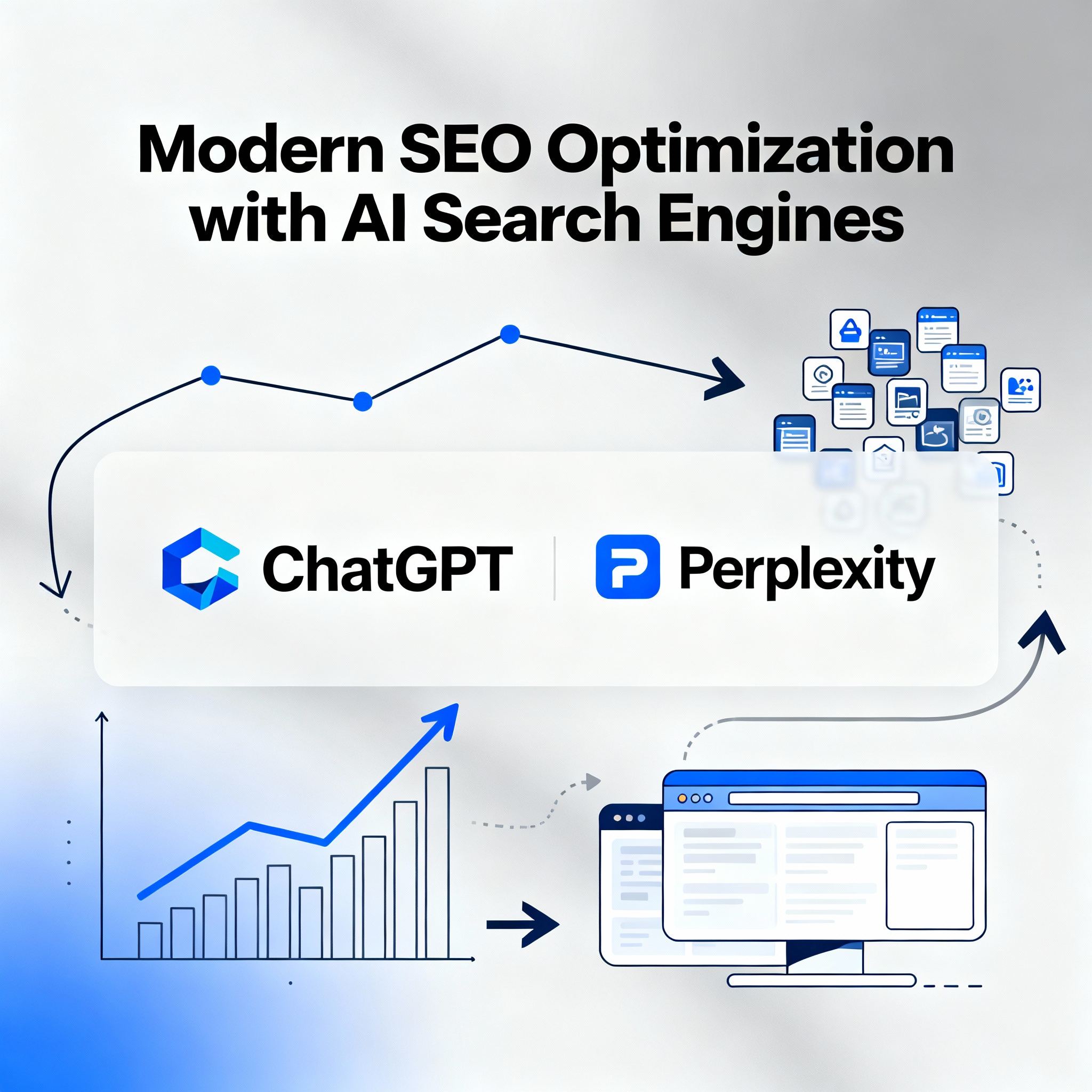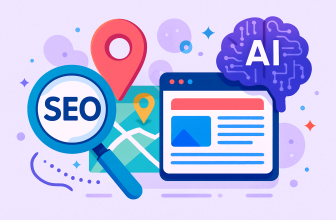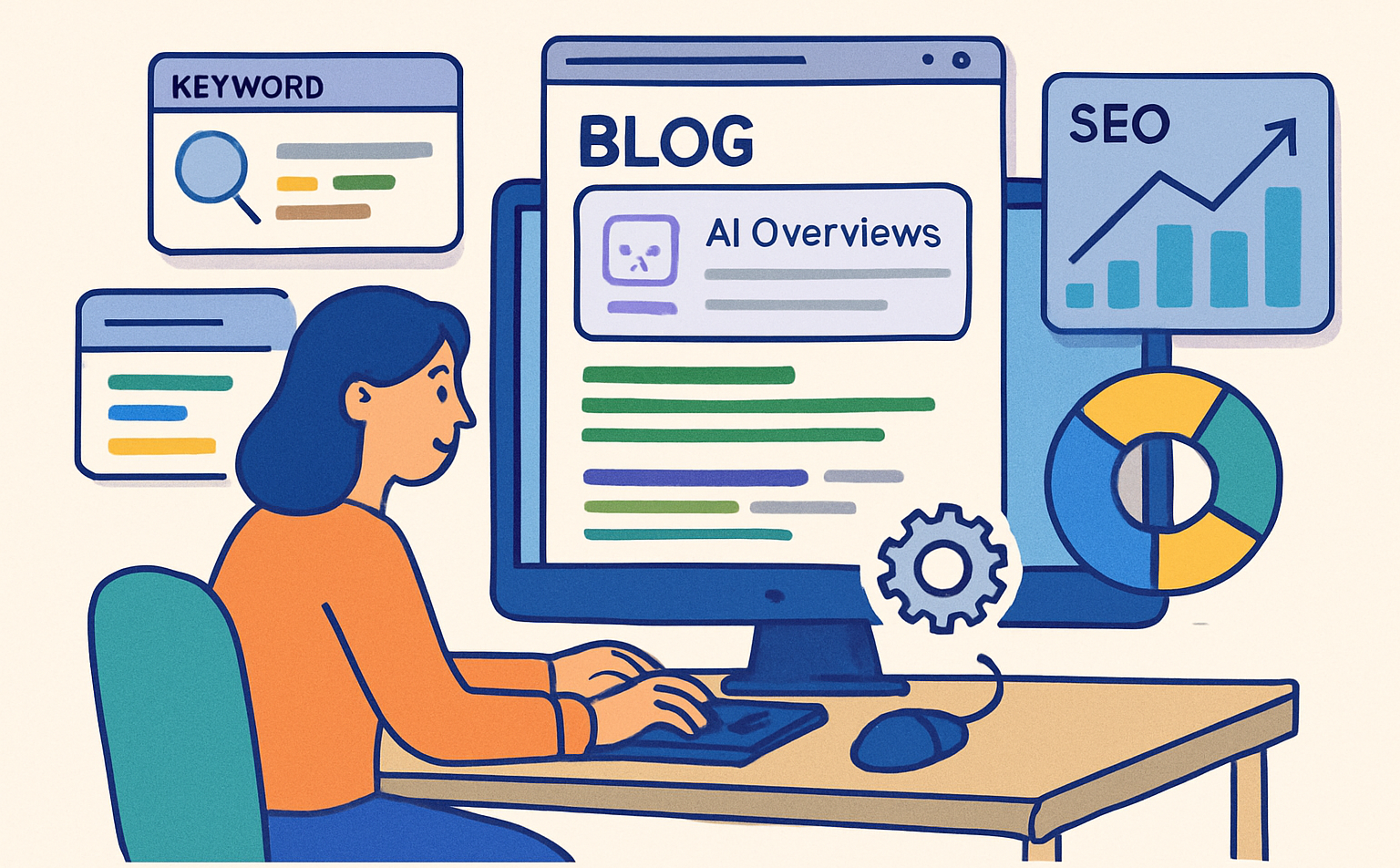
The search landscape has fundamentally shifted. While we used to optimize purely for Google’s traditional search results, businesses now need to ensure they appear in AI-powered search tools like ChatGPT, Perplexity, and Google’s AI Overviews. With over 60% of searches now ending without users clicking through to any website, getting mentioned directly in AI-generated answers has become as crucial as ranking on the first page of Google.
This comprehensive guide reveals the strategic SEO techniques that will make your business visible and recommended by AI search engines, while maintaining your traditional search rankings.
Understanding the AI Search Revolution
AI search optimization represents the next evolution of SEO. Unlike traditional search engines that display lists of relevant websites, AI tools synthesize information from multiple sources to provide direct, conversational answers. When someone asks ChatGPT “What’s the best Italian restaurant near downtown Denver?”, they get an immediate recommendation rather than a list of links to explore.
The implications are staggering. AI Overviews now appear in 49% of search results, up from just 25% in August 2024. Tools like ChatGPT have reached 180.5 million monthly active users, while Perplexity has experienced 858% growth in search volume. These aren’t just tech enthusiasts—regular consumers are increasingly using AI to discover businesses and services.
Core Principles of AI Search Optimization
Create Authority-Driven Content
AI systems prioritize credible, expert sources when selecting content to cite. Research from Princeton University reveals that adding credible citations and expert quotes can improve AI visibility by up to 40%. Your content needs to demonstrate E-E-A-T signals (Experience, Expertise, Authoritativeness, Trustworthiness) that AI algorithms can recognize and validate.
Implementation Strategy:
- Include specific statistics and data from reputable sources
- Add expert quotes and industry insights to your content
- Display author credentials and professional qualifications
- Link to authoritative external sources and studies
Structure Content for AI Understanding
AI tools excel at extracting information from well-organized, structured content. Your website needs to present information in formats that AI systems can easily parse and synthesize.
Content Structure Best Practices:
- Use clear, descriptive headings (H2, H3) that mirror potential user queries
- Create FAQ sections that directly answer common questions
- Implement question-based content formats: “What is [topic]?” “How do you [process]?” “When should [action]?”
- Break complex information into scannable bullet points and numbered lists
Optimize for Conversational Queries
Voice search and conversational AI have changed how people ask questions online. Instead of typing “plumber Denver emergency,” users now ask “Who’s the best emergency plumber near downtown Denver?”. Your content must address these natural language queries.
Conversational Optimization Techniques:
- Target long-tail, question-based keywords
- Write in a natural, conversational tone
- Address the complete user journey with comprehensive answers
- Include location-specific and context-rich information
Technical Infrastructure for AI Visibility
Configure Your Robots.txt for AI Crawlers
Many businesses accidentally block AI crawlers, making their content invisible to AI search engines. Your robots.txt file must specifically allow AI bots while maintaining security.
Essential AI Crawler Configuration:
# Allow AI search engines
User-agent: OAI-SearchBot
User-agent: ChatGPT-User
User-agent: PerplexityBot
User-agent: AndiBot
Allow: /
# Allow traditional search
User-agent: Googlebot
User-agent: Bingbot
Allow: /
Implement Strategic Schema Markup
Schema markup has become crucial for AI search visibility. Structured data helps AI systems understand your content’s context and meaning, making it more likely to be cited in responses.
Priority Schema Types:
- LocalBusiness Schema: For location-based businesses
- FAQ Schema: For question-and-answer content
- Article Schema: For blog posts and informational content
- Organization Schema: For company credibility
- Review Schema: For customer testimonials
Research shows that schema quality—not just presence—significantly impacts AI Overview visibility. Well-implemented structured data gives pages a measurable advantage in AI-generated results.
Ensure Fast, Mobile-Optimized Performance
AI systems often have tight timeouts (1-5 seconds) for retrieving content. Slow-loading pages may be completely ignored by AI crawlers, regardless of content quality.
Performance Optimization Checklist:
- Achieve Core Web Vitals scores above Google’s thresholds
- Implement mobile-first responsive design
- Compress images and optimize file sizes
- Use clean HTML structure that AI can easily parse
Content Strategy for AI Citation
Answer Real Questions Directly
AI tools prioritize content that provides immediate, helpful answers. Start each section with a clear response, then provide supporting details.
Effective Answer Structure:
Question: "Do you offer emergency plumbing services?"
Direct Answer: "Yes, we provide 24/7 emergency plumbing services throughout downtown Boston with average response times of 30 minutes."
Supporting Details: [Service areas, pricing, contact information]
Include Specific, Verifiable Information
AI systems favor concrete data over vague descriptions. Include specific statistics, prices, locations, and measurable outcomes whenever possible.
High-Value Content Elements:
- Exact service areas and coverage zones
- Specific pricing ranges or starting prices
- Operating hours and availability
- Response times and service guarantees
- Years in business and customer satisfaction rates
- Professional certifications and licenses
Leverage Original Research and Data
Publishing original research significantly increases your chances of AI citation. AI engines elevate sites with unique, credible data that other sources reference.
Original Content Strategies:
- Conduct customer surveys and publish results
- Compile industry statistics and trends
- Create comprehensive guides with proprietary insights
- Share case studies with specific outcomes and data
Local Business Optimization for AI Search
Master NAP Consistency
Your Name, Address, and Phone (NAP) information must be identical across all online platforms. Even minor inconsistencies like “St.” versus “Street” can confuse AI systems and reduce your local visibility.
NAP Optimization Requirements:
- Maintain exact consistency across Google Business Profile, Yelp, Facebook, and directory listings
- Use plain text format (not embedded in images)
- Include NAP information in website footer and contact pages
- Implement LocalBusiness schema markup with accurate details
Optimize Google Business Profile Completely
Your Google Business Profile serves as the primary data source for AI recommendations about local businesses. Complete optimization dramatically improves your visibility in AI-generated local results.
Complete Profile Optimization:
- Fill out all available sections and attributes
- Add high-quality photos of your business, team, and work
- Post regular updates about services and offerings
- Respond to all reviews professionally and promptly
- Include specific service keywords in your business description
Create Location-Specific Content
Develop content that addresses local search intent and community needs. AI tools favor businesses that demonstrate deep local knowledge and community involvement.
Local Content Ideas:
- Neighborhood-specific service pages
- Local event participation and sponsorships
- Community problem-solving content
- Area-specific tips and advice
- Local partnerships and collaborations
Advanced AI Optimization Strategies
Build Multi-Platform Authority
Brand mentions across diverse platforms significantly impact AI citation rates. AI systems consider brands mentioned frequently online as more authoritative and trustworthy.
Authority Building Tactics:
- Engage actively in industry forums and Reddit discussions
- Contribute valuable answers on Quora and professional platforms
- Participate in local community events and online groups
- Seek mentions in relevant publications and industry blogs
Create Comparison and List Content
Research shows that comparative content and listicles are the most frequently cited content types by AI systems. These formats naturally provide the structured, factual information that AI tools prefer.
High-Citation Content Formats:
- “Best [services] in [location]” comparisons
- “Top 10 [solutions]” with detailed explanations
- Feature comparison tables and matrices
- Step-by-step process guides with clear numbering
Optimize for Zero-Click Visibility
With 60% of searches ending without clicks, brand visibility in AI responses becomes as valuable as website traffic. Focus on getting mentioned positively in AI-generated answers, even if users don’t visit your site.
Zero-Click Optimization:
- Ensure your business name appears in AI responses to relevant queries
- Monitor AI mentions across multiple platforms
- Track sentiment and accuracy of AI-generated information about your business
- Correct misinformation by updating source content
Measuring AI Search Performance
Track AI Visibility Metrics
Traditional SEO metrics don’t capture AI search performance. Implement AI-specific tracking to measure your optimization success.
Essential AI Metrics:
- Frequency of mentions in AI responses
- Sentiment of AI-generated content about your brand
- Citation rates across different AI platforms
- Brand mention accuracy and completeness
- Conversion from AI-referred traffic
Monitor Multiple AI Platforms
Different AI tools may cite your business differently. Track performance across ChatGPT, Perplexity, Google AI Overviews, and Bing Chat to understand your complete AI visibility.
Platform-Specific Optimization:
- Perplexity: Focuses on up-to-date information with visual elements
- ChatGPT: Prioritizes authoritative sources with expert credentials
- Google AI Overviews: Emphasizes E-E-A-T signals and local relevance
- Bing Chat: Integrates traditional search signals with conversational AI
Implementation Roadmap
Phase 1: Foundation (Week 1-2)
- Audit and fix robots.txt configuration for AI crawlers
- Ensure NAP consistency across all online platforms
- Complete Google Business Profile optimization
- Implement basic schema markup for your business type
Phase 2: Content Optimization (Week 3-6)
- Create comprehensive FAQ pages addressing common questions
- Rewrite key pages with direct, conversational answers
- Add credible sources and expert quotes to existing content
- Develop location-specific landing pages
Phase 3: Authority Building (Month 2-3)
- Launch original research or data collection projects
- Build relationships with industry publications and influencers
- Engage actively in relevant online communities
- Create comparison content and detailed guides
Phase 4: Advanced Optimization (Month 4+)
- Implement advanced schema markup across all content types
- Develop AI-specific content distribution strategies
- Create systematic brand mention monitoring and management
- Optimize for emerging AI platforms and features
Avoiding Common Pitfalls
Don’t Block AI Crawlers: Many businesses accidentally block AI bots in their robots.txt files, making their content invisible to AI search engines.
Don’t Ignore Content Quality: AI systems heavily favor high-quality, authoritative content. Keyword stuffing and thin content will hurt your AI visibility.
Don’t Neglect Technical SEO: Fast loading times, mobile optimization, and clean HTML structure are crucial for AI crawling and indexing.
Don’t Forget Local Consistency: Inconsistent business information across platforms confuses AI systems and reduces local search visibility.
The businesses that implement comprehensive AI search optimization now will gain significant competitive advantages as AI adoption accelerates. Start with the foundational elements—proper technical configuration, content optimization, and local consistency—then build toward advanced strategies that establish your business as the authoritative source in your industry.
By focusing on providing genuine value through expert content, technical excellence, and consistent local presence, you’ll ensure your business thrives in the AI-powered search landscape while maintaining strong traditional SEO performance.





